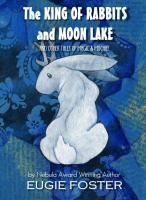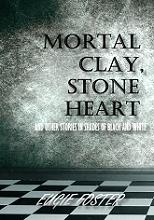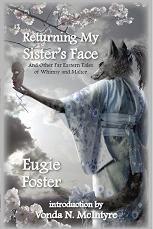One of my writers group peeps forwarded a link to this article: “The Fiction Machine: The Workshop and the hacks.” In it, Sam Sacks purports that writing workshops and creative writing programs, due to fundamental flaws in how they’re structured and effected, are cranking out formulaic and lackluster writers:
“Large, impersonal, ever-shuffling workshops are led by writers of, on average, mediocre ability who throw only part of their energy into helping their students. The result of all this is as predictable as it was inevitable: Writing is taught by rote. Limited in time and care and needing to satisfy at once a wide range of very different would-be writers, professors must rely on the crutches of formula.”
Sacks is particularly dismissive of the Best New American Voices 2006 anthology as illustrative of this phenomenon, which I haven’t read. So I can’t comment as to whether I agree with his taste in short fiction or his evaluation of what constitutes literary merit. But he does make a compelling argument that a proliferation of these writing programs is, in effect, perpetuating a recipe for formulaic writing as well as a proclivity for formulaic and conservative perceptions on what constitutes “good” writing.
Obviously, when talking about any group of things, there’s generalization happening; it’s incontrovertible that some writing programs are better than others. And I’m inclined to believe that the basic craft of writing is something that can be taught and learned. But when the fundamental mechanics–grammar, punctuation, spelling–are disparaged as suitable subject matter and aren’t included in the curriculum, I kinda have to raise an eyebrow.
As a caveat, I haven’t attended a creative writing program or workshop so have no firsthand experience with them. And also, this article seems primarily focused on non-genre writing and doesn’t seem to take into account such workshops as Clarion and Odyssey, which are taught by luminaries in the field.
But I’ve often lamented that I never had more formal training in creative writing, wondering if perhaps the experience might have sparked something deeper, finer, or more insightful in my writing. Or even if it might have gotten me past some of the early foibles and flaws in my writing faster and with greater ease than my own blundering trial-and-error. I’ve even speculated in the past about going back and getting an MFA. But maybe it’s just as well. I also didn’t have to overcome academic indoctrination against risk taking and experimentation.









I like degrees. I think they’re neat. However, I think their real usefulness lies elsewhere. I can’t see that they’ve ever turned a non-writer into a writer or that their lack has stopped anyone from becoming one. There’s a remarkably non-elitist aspect of writing that I like even more than degrees.
I found the best thing about going to someplace like Clarion was being in the company of people as serious as I was about writing. It was inspiring. I’ve kicked around MFA thing. I asked Chip Delany, and he discouraged it. He said that after a certain point, the only way to get better is to just keep writing. It was his opinion that creative writing classes stifled the deeper, finer, or more insightful writing you are talking about.
Besides, I think your writing does have that spark.
Just offering as counterpoint or continuation, with a lot of historical data specific to genre, an article that a friend of mine had in IROSF recently:
http://www.irosf.com/q/zine/article/10383
Sacks’s article is interesting, though. It is a reflection on academia as a whole, I think, and its pitfalls, which seem to manifest in similar situations. I’ve been thinking about this a lot lately because I’ve been considering going back to grad school in philosophy. I read something about the dynamic between analytic and continental philosophy that brought me up a little short — the author, a prominent professor notable in the field, if occasionally controversial, was saying that no philosophy department assumes that it will be training a new Nietzsche. I think this is similar to what Sacks is saying about his use of Tolstoy and the like, and the degree to which academia pressures its students out of thinking that they can achieve greatness may well be at play in both cases… because my immediate thought on reading the phrase about Nietzsche (which I could see had truth to it) was: why aren’t they?
The same arguments, though, might apply here. This guy was arguing that individual students should be studying analytic techniques even if they want to work in the continental. I think there is something to that and there is likely an analog to training in workshops, though this is where Sacks’s comments on the avoidance of workshops to train the specific (grammar, etc) come into play. A good workshop, I think, should train in the specifics, in the tools, and in training thought, and then release the student to do their work on their own, with the more close-knit workshop relationship with a couple of individuals who understand their work through exposure over a long period of time. In this scenario, which I do think it is possible for universities to aspire to and does happen, the effects of the workshop might not be seen for decades after the program was completed. I know that I will be feeling the effects of the Odyssey Writing Workshop on my process for that long and longer — a combination of instruction, guidance, and connection building (it would be interesting to note where the great and famous close relationships that Sacks talks about between writers were originally formed — how they met) that does not stuff a person into a mold so much as it sets them upon a trajectory. The end destination, or the remainder of the journey, is entirely up to them.
But cool link. Good things to think about.
I have a close friend who’s a poet and just finished her MFA. She publishes poems in small mags pretty regularly. What she said about the program was what I suspected: the best thing those programs give you is community–a group of other people interested the same thing who take you seriously and will talk about their craft. It’s not unlike critters, except that the participants have been screened for seriousness and (to a certain degree) for skill. She also had professors who were publishing regular poetry, and they helped with that process, but mainly she enjoyed being around like-minded people.
As one who did get a degree in creative writing, I’ll say that it’s helpful, but not in any respect necessary.
A great deal of the improvement in my writing brought about by those classes came, not from any specific formal instruction, but via feedback on my writing from both the professor and the other students. It seems to me that a good, well moderated writers’ workshop could provide much the same advantage. (The trick, of course, is finding a good one, but that I can’t help with.) 😉
Oh, there was some very helpful feedback on the part of the professors, don’t get me wrong. But I don’t think it was the main benefit of the course.
(And not all my CW professors were good. I had one who tried to drum into our heads that any genre writing–sci-fi, fantasy, romance, horror, whatever–was by definition inferior, a waste of our talents, and that we should strive for “better.” What’s worse is, based on the advice he tried to give me when I ignored that and continued to write genre material, he clearly had no clue what good sci-fi/fantasy/horror was, or what sorts of people (i.e. anyone) actually read it.)
I agree with this. Mike Ritcher’s Best New Voices in Sci-Fi was terrible. Chock full of formulaic plots and over-used tropes. Nothing compared to WotF.
But what can be done about it? Presumably its up to editors to filter that kind of stuff out.
I would be willing to bet that Clarion and the like *are* different for several reasons, including the one that you stated. It is taught by the best of the best, plus I think speculative fiction tends not to be formulaic. Well, good sf is at least. To me, what makes it good is its ability to surprise.
Plus, I think some of the best stuff written these days is being marketed YA. Sharyn November’s Firebird imprint is especially worthy in my eyes. She’s done two really great YA SF/F anthologies.
I meant to type “Good sf is NOT formulaic.” Stupid fingers.
One of the people in my Latin class at uni last year was taking the Creative Writng courses offered by the English department. He wants to write urban fantasy – popular fiction, in other words. However, the convenor of the “Creative Writing” course Does Not Like popular fiction, so poor Joel didn’t do very well, even though what he was writing was perfectly enjoyable to read.
On the other hand, if you want a formulaic plan for blockbuster fiction sometime, check out The Marshall Plan for Novel Writing, by Evan Marshall, available via Writer’s Digest Books. It tells you how many subplots you need based on the number of characters you have, what sort of characters you should have, what the subplots should be, and how the opening scenes should be structured.
I think if I were offered any type of writing classes I wanted, I’d take NCSU’s MFA program over any alternatives. Six weeks just isn’t enough time to find out who you are as a writer, no matter how expertly the classes are taught. I can see what he’s saying about needing a mentor, but there are professors who take their duty to teach seriously.
I think, as with any field, there are bad classes, there are good classes, and there are exceptional classes.
Writing is, incorrectly, often perceived as something anyone could sit down and do. “All it takes is a good idea and some time”. Anyone who has ever tried to get something published knows just how very wrong that idea is.
Unfortunately, because of this perception that it’s easy to write, it’s very easy to get people to sign up for a course that will “teach them to write in 12 easy steps!” It’s a very good way to make quite a lot of money, but not a very good way to actually learn how to write and more importantly, how to write well.
I think everyone who ever tried to really write something knows just how hard it is to come up with something new. And even the books we really love can often be broken down into some formula or another. As such, I think good writers aren’t those who don’t use formula, but those who are able to use the formula and present it in an interesting, possibly even new, way. I think the very best writers (barring those who truly do come up with something new — they are in a class all of their own), are ones who are able to use a formula so well, they hide it, and people aren’t even aware a formula was used at all.
The two formal writing courses I have done were both, I think, well done. AC Crispin’s class was wonderful, and the other one was a course by the Children’s Writing Institute. Of course, I have no idea how good the latter was on an objective scale, but I did learn a lot of mistakes I made and how to correct them to my satisfaction (which may not be good enough for writers like Eugie or many of you others — I’m not trying to get my writing published, after all.)
My guess is that there are valid reasons to complain about many creative writing courses, because they’re designed to part the student with their money, and not really teach anything. I also think there are exceptionally good writing courses out there.
I believe the trick is two-fold: 1) Find the good courses and 2) be able to tell the good from the bad.